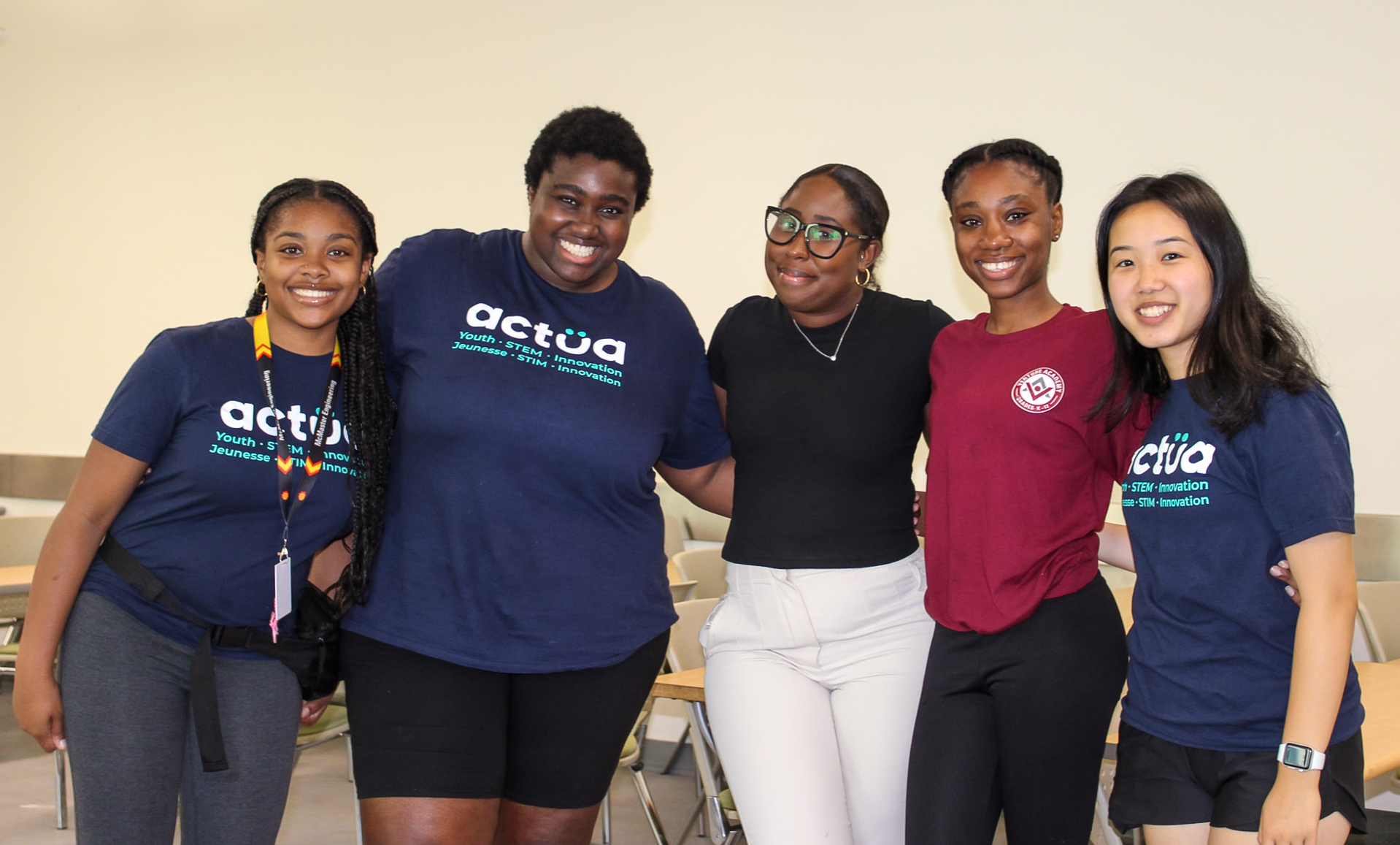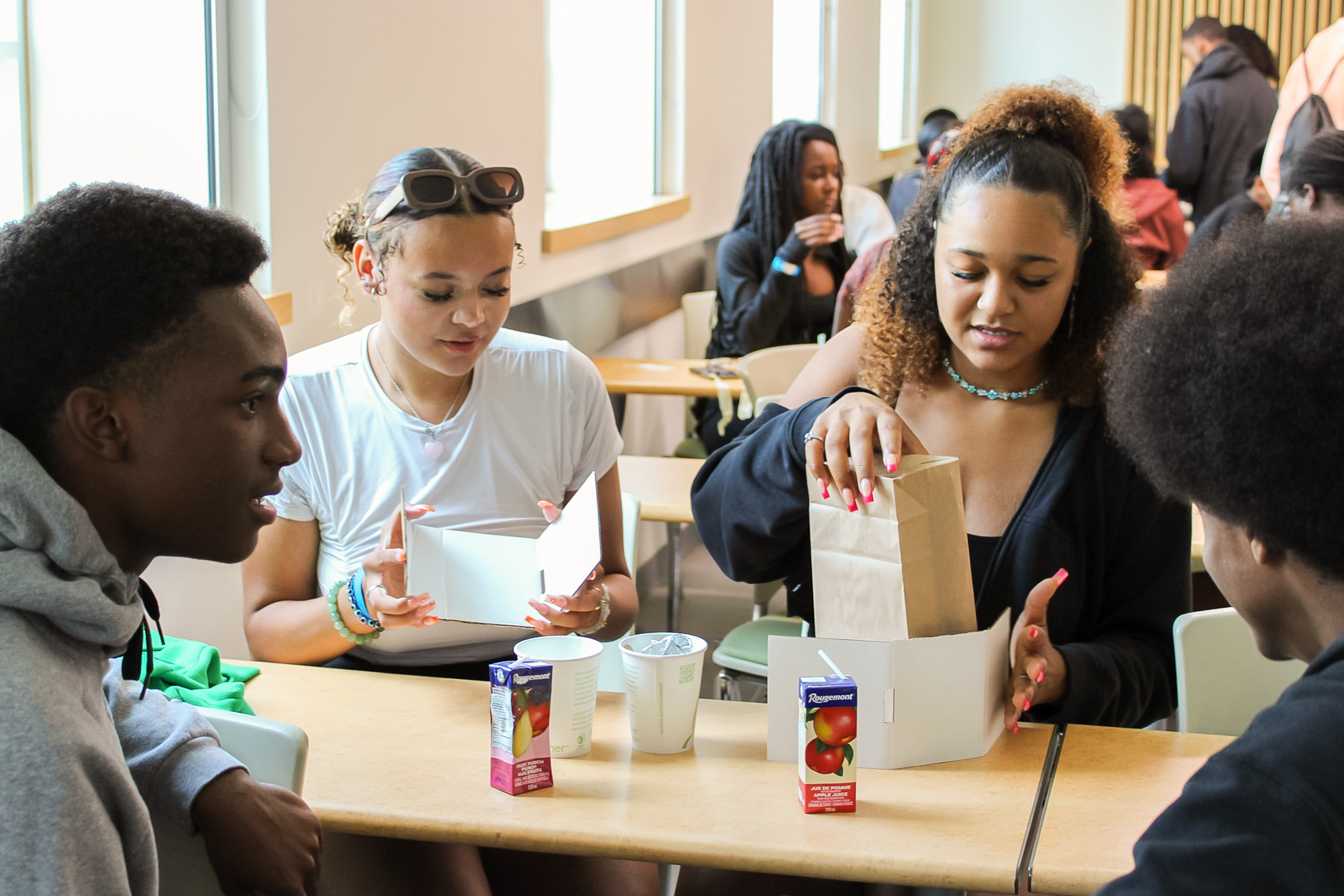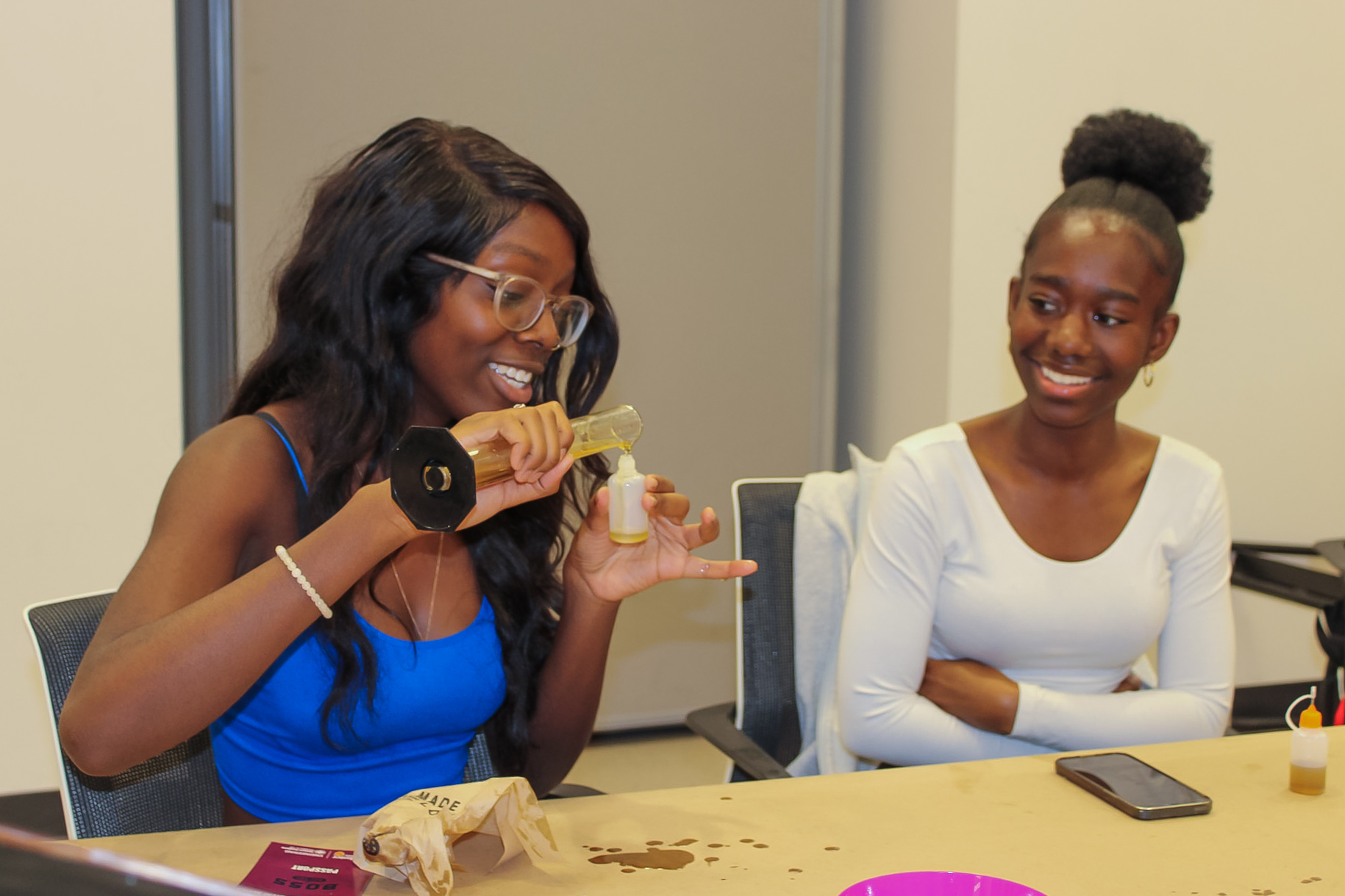Fostering Diverse and Inclusive Learning Spaces for Black Youth in STEM
Jennifer Ladipo and D’Andre Wilson joined together to discuss the importance of fostering inclusive and diverse environments for Black youth in STEM.
Black communities have historically been underrepresented in science, technology, engineering, and mathematics (STEM) careers, a reality shaped by systemic barriers and limited access to opportunities. Despite abundant talent and interest, Black youth often face challenges seeing themselves reflected in STEM fields through role models, curriculum or culturally relevant programming. Addressing these gaps is essential to encouraging more Black youth to fulfill STEM career goals and foster a more inclusive STEM landscape.
One initiative working to break down these barriers is the Black Outreach STEM Series (BOSS), a program led by Actua’s network member McMaster Engineering Community Outreach at McMaster University in Hamilton, Ontario. The BOSS program creates a space where Black youth can see themselves in STEM, connect with mentors, gain critical skills for future careers and engage in hands-on workshops that make STEM relevant to their lived experiences.
Engaging 3,300 youth in 2024, the BOSS program was developed to address a crucial gap in STEM learning. Black youth often do not enroll in high school STEM courses, which limits their access to post-secondary STEM programs. This program was designed with the understanding that traditional approaches to STEM may not always resonate with Black youth. By integrating STEM concepts with topics like music, sports, cultural arts and even hair care, the program makes STEM accessible and relatable.
“Black youth aren’t uninterested in STEM,” explains Shelby Amponsah, Outreach Team Lead at McMaster Engineering Community Outreach. “It’s just that STEM is often presented through a Eurocentric lens that doesn’t always align with our experiences. But if you look at our daily lives—our hair, food, music, culture—it’s all STEM. We aim to show youth that they already engage with STEM daily.”
Two barriers for Black youth in STEM are financial and social access. Many STEM programs come with costs and even free programs may not be widely known or designed with inclusivity in mind. The BOSS program removes these obstacles by offering free workshops and partnering with Black grad coaches, community centres and school boards to ensure outreach is targeted and impactful. “Programs like BOSS help overcome barriers by being accessible and culturally relevant,” Shelby emphasizes. “We actively reach out to schools with high Black student populations and ensure youth know about these opportunities. Representation and access go hand in hand.”

BOSS workshops help to make STEM more relevant to Black youth. By designing workshops highlighting real-world issues—like food insecurity or cultural practices, like hair care, STEM becomes more tangible, relevant and accessible. Some standout activities include:
Food Desert and Coding Activity: In this workshop, students use coding to determine the best location for a grocery store to serve communities living in areas with limited access to affordable, healthy food. Through this process, they engage with engineering concepts like automation, software design and urban planning while addressing systemic inequalities. Shelby explains, “That workshop resonates with a lot of students. We put up a map of Hamilton with grocery stores, and they point out their neighbourhoods. Then they see for themselves—wow, I live two or three blocks away from a Food Basics, but we don’t have a car. Or my grandma does all the shopping and takes two buses to No Frills.”
The activity builds digital literacy skills and helps students recognize the historical and structural factors that shape their lived environments. By using coding to solve real-world challenges, youth can see themselves as leaders of change in their communities.

Hair Care Series Workshop: This workshop blends chemistry, entrepreneurship and self-care, offering a STEM experience that connects to students’ everyday cultural practices. Youth experiment with different oils, learning about their properties and how they interact to nourish various hair textures. Beyond the science, the workshop introduces students to entrepreneurship by challenging them to think like business owners. “Even though we all made hair oil, we challenge youth to create a brand, set a price and pitch it like they’re on Shark Tank or Dragon’s Den,” Shelby explains. Students develop product names, craft marketing strategies and share what makes their product unique. This hands-on activity sparks scientific curiosity and encourages students to see potential STEM career paths. Many youth are surprised to realize that what they do every day—caring for their hair—has a foundation in chemistry and product development.
This workshop empowers students to see the connections between science, culture and economic opportunity. It also challenges perceptions around who can be a scientist or an entrepreneur, reinforcing that their lived experiences have real value in both fields.

Programs like BOSS are more than just STEM workshops – they are about empowering Black youth to see themselves as innovators, entrepreneurs and changemakers – and ultimately to see the many STEM career paths available to them. The future of STEM is diverse and programs like BOSS are paving the way for a generation of Black youth who can shape industries, solve real-world challenges and become the next wave of scientists, tech leaders and engineers.